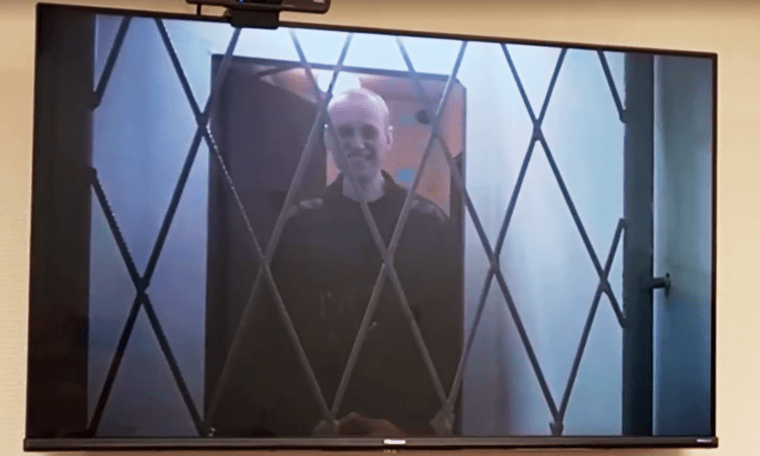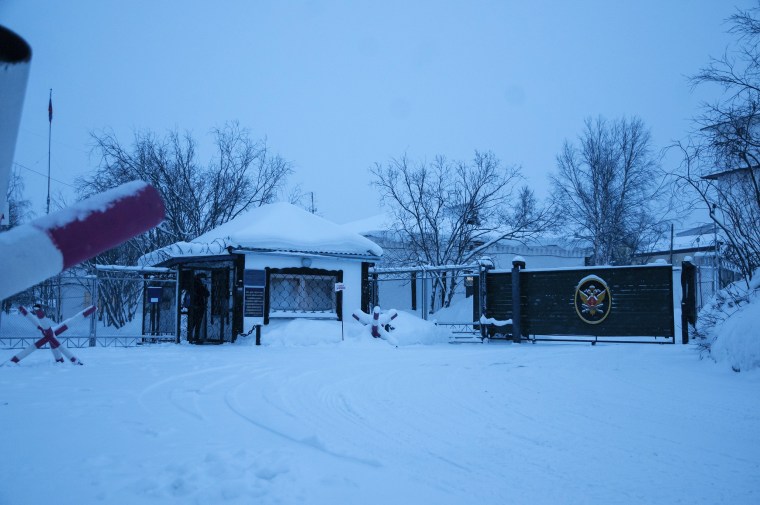Russian opposition leader Alexei Navalny dies in prison
Russian opposition leader Alexei Navalny has died in prison, the country’s state media reported Friday, ending a yearslong fight against corruption and the Kremlin that saw him survive several poisoning attempts.
He was 47.
A prominent critic of President Vladimir Putin, Navalny spent his final months behind bars as the Russian leader reshaped the country to rally behind his war in Ukraine.
“On February 16, 2024, in penal colony No. 3, convict A.A. Navalny felt unwell after a walk, almost immediately losing consciousness,” news agency Interfax reported, citing the country’s orison service.
“The facility’s medical workers immediately arrived at the scene and an emergency medical team was called in. All necessary resuscitation measures have been carried out, but they did not yield positive results. Emergency medics confirmed the death of the convict,” it added.
His death leaves Russia’s opposition, hampered by years of harassment and prosecution, without a clear figurehead. All of Putin’s most high-profile critics are now either dead, jailed or in exile.
But Navalny was, undoubtedly, the biggest thorn in the Kremlin’s side.
For over a decade, he led nationwide protests against the authorities, ran for office to challenge members of the Russian establishment and set up a network of campaign offices across the country that have since been dismantled.

Born in 1976 in the tiny town of Bytyn, near Moscow, Navalny was educated as a lawyer and economist, but entered politics in 2008, starting his anti-corruption fund, FBK, three years later.
He was known for his oratory skills as well as his use of the online space to promote the results of his investigations and spread his ideal of what he called the “wonderful Russia of tomorrow.” His digital savvy made him particularly popular among Russia’s more democratically minded teens and youth.
Navalny rose to prominence as Russia’s most outspoken Kremlin critic after leading a series of anti-corruption investigations into top members of the Russian elite.
His 2017 exposure of the lavish lifestyle of Dmitry Medvedev, a former president and prime minister, led to mass protests. And an investigation into a luxurious “secret palace” on Russia’s Black Sea coast, purportedly owned by Putin, resulted in a wave of indignation across Russia in 2021.
Navalny tried to run against Putin in the 2018 presidential election, but was barred from entering the race due to a 2014 embezzlement conviction, which he categorically denied as fabricated to keep him out of politics. Russian officials made a point of not referring to Navalny by name to avoid raising his profile in public.
While on a business trip in Russia in August 2020, Navalny was poisoned with a military nerve agent in an attempt on his life that he blamed directly on Putin.
Navalny survived the ordeal thanks to the insistence of his family that he be airlifted to Germany, where he underwent treatment and a long rehabilitation process.
The Kremlin denied any involvement in his poisoning, which was condemned by Western governments and led to a further straining of relations with Russia.
Navalny nonetheless decided to return to Russia in early 2021 and was arrested upon landing on charges stemming from the 2014 embezzlement case. He was sentenced to 2 ½ years in prison for a parole violation linked to that conviction. The decision came days after more than 5,000 people were detained across Russia in rallies supporting Navalny.
His allies have also been persecuted, and his anti-corruption fund was declared an extremist organization a few months after his sentencing, forcing it to shut down and most of the top staff to flee abroad.
He was tried on new charges of fraud and contempt of court and was sentenced to nine more years in jail. Then in August, he was sentenced to a further 19 years in a maximum security penal colony on charges of extremism, in what his allies and the international community called a Kremlin campaign to keep him incarcerated forever. Navalny has denied all charges against him as politically motivated.
His supporters have raised concerns about his treatment in custody and detention conditions, including access to proper medical care and frequent isolation in a tiny punishment cell.
In an interview with NBC News in 2021, Putin said he could not guarantee Navalny would get out of prison alive.
But even in jail, Navalny continued to challenge Putin.

In his signature defiant but sarcastic style, Navalny detailed the realities of the Russian penitentiary system and promoted new…
Read More: Russian opposition leader Alexei Navalny dies in prison

